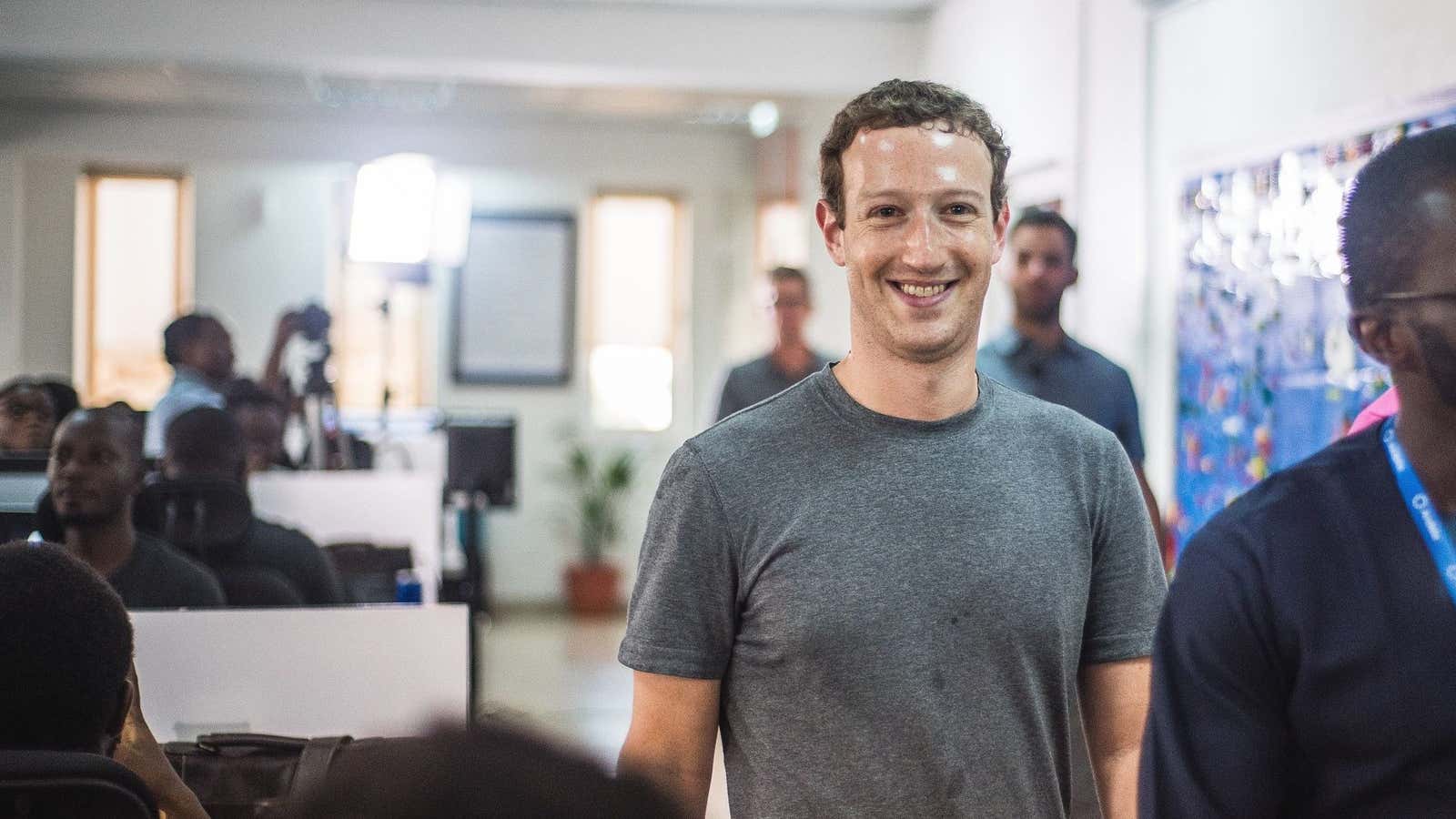On his surprise tour of tech hubs in Africa, Mark Zuckerberg has made a pit stop in Nairobi. Announcing his arrival on Facebook, he described talking with entrepreneurs working out of the tech space, the iHub, and dining on ugali and tilapia with Kenya’s cabinet secretary of information and communications.
“I’m here to meet with entrepreneurs and developers, and to learn about mobile money—where Kenya is the world leader,” he wrote.
[protected-iframe id=”3c5328340f0183d87d8cbb380fd20a92-39587363-37717567″ info=”https://www.facebook.com/plugins/post.php?href=https%3A%2F%2Fwww.facebook.com%2Fphoto.php%3Ffbid%3D10103073829612611%26set%3Da.612287952871.2204760.4%26type%3D3&width=500″ width=”500″ height=”555″ frameborder=”0″ style=”border: none; overflow: hidden;” scrolling=”no”]
Zuckerberg’s unannounced tour, his first time in sub-Saharan Africa, is a sign of his growing focus on the continent. He arrives after a two-day visit to Lagos, Nigeria, where he visited an accelerator, met with startup founders, and went jogging. The Chan Zuckerberg Initiative founded by Zuckerberg and his wife, invested $24 million in Andela, a Lagos start-up that trains and outsources local software developers. Facebook’s Internet.org campaign, to bring free internet to the poor, is also heavily focused on Africa.
Nairobi makes sense as Zuckerberg’s next stop. It is home to the world’s largest mobile money platform, M-Pesa, the crowdsourced disaster mapping platform Ushahidi and companies like M-Kopa, a solar company that sells power to the rural poor on credit, or Bridge International, a controversial for-profit school chain that the Facebook co-founder supports.
Mobile money in Kenya, which allows mobile phone users to send or receive money, undergirds much of the country’s economy from banking and credit scoring to sports betting. For the first six months of this year, 1.59 trillion Kenyan shillings (about $20 billion) flowed through mobile money platforms.
There’s a whole continent beyond Lagos and Nairobi worth visiting, if Zuckerberg is willing to invest the time. The number of tech hubs and incubators across the continent has more than doubled over the past year.
